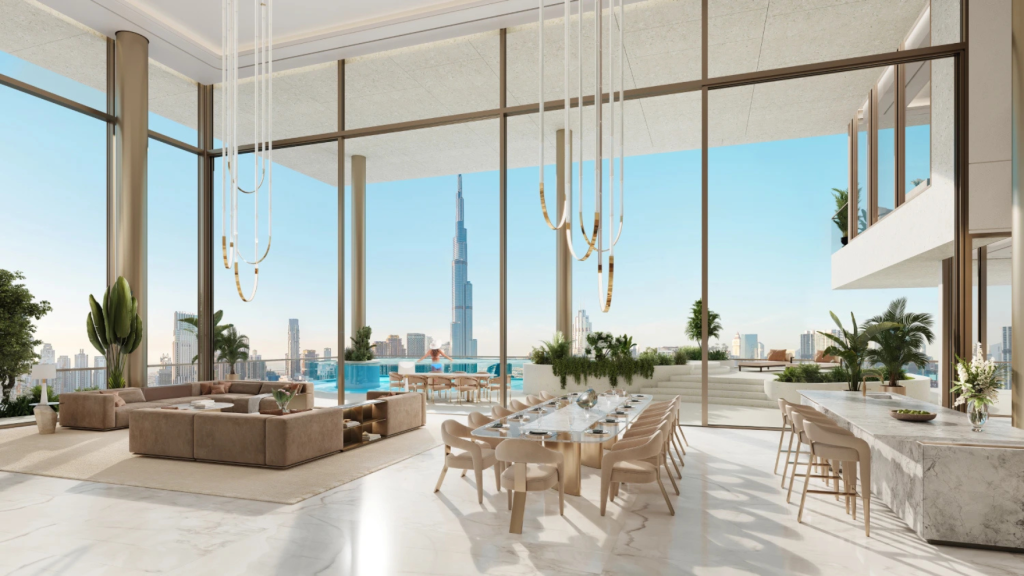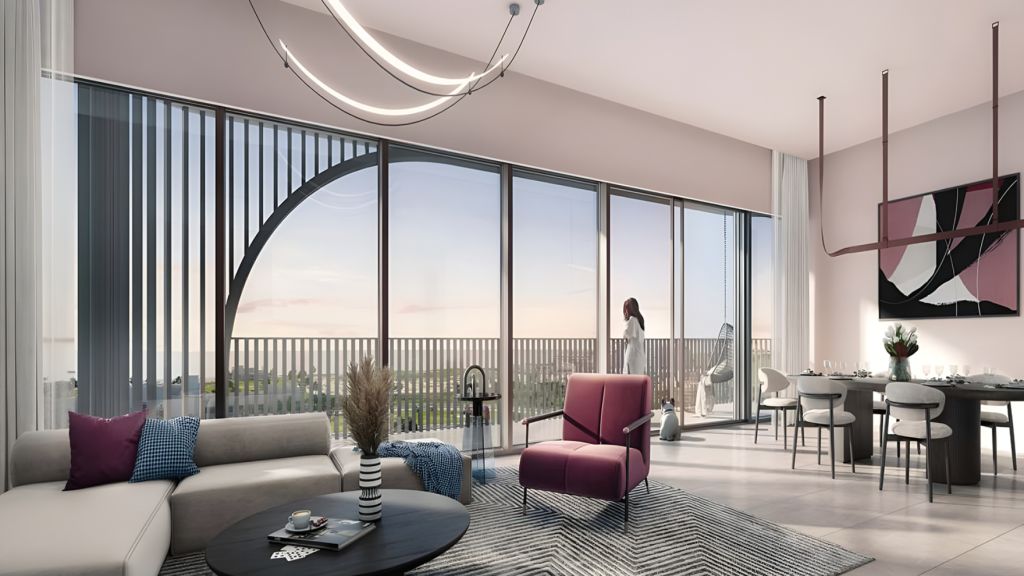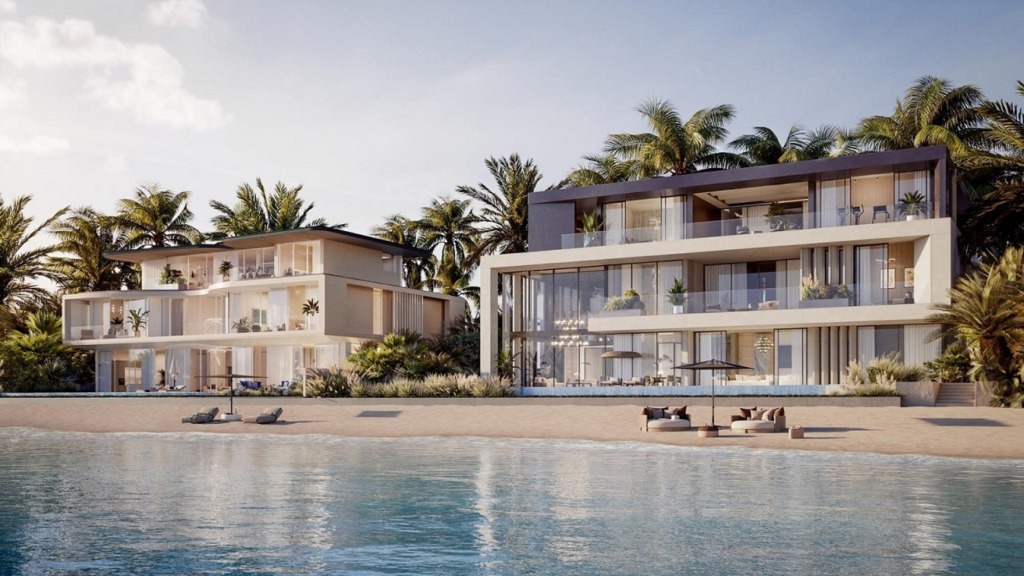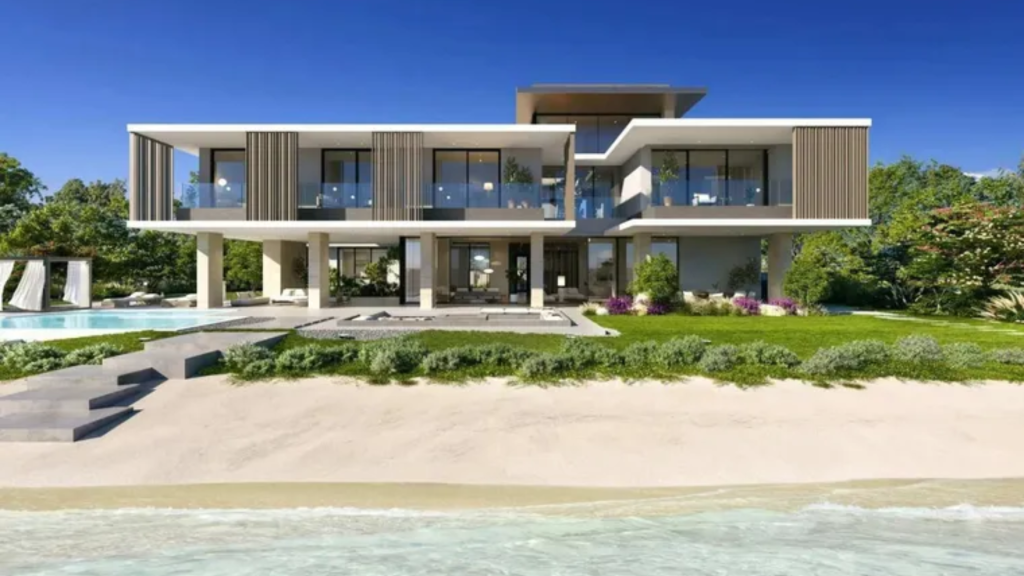Apartment Prices in Dubai 2025
Dubai, being the largest and most populous city in the United Arab Emirates (UAE), has seen dramatic development across several sectors and industries, including real estate. Known for its architectural wonders and cosmopolitan lifestyle, Dubai’s real estate market presents a dynamic landscape. This in-depth review on apartment prices in Dubai is aimed at armoring interested buyers, real estate investors, and market analysts with accurate and up-to-date market data.
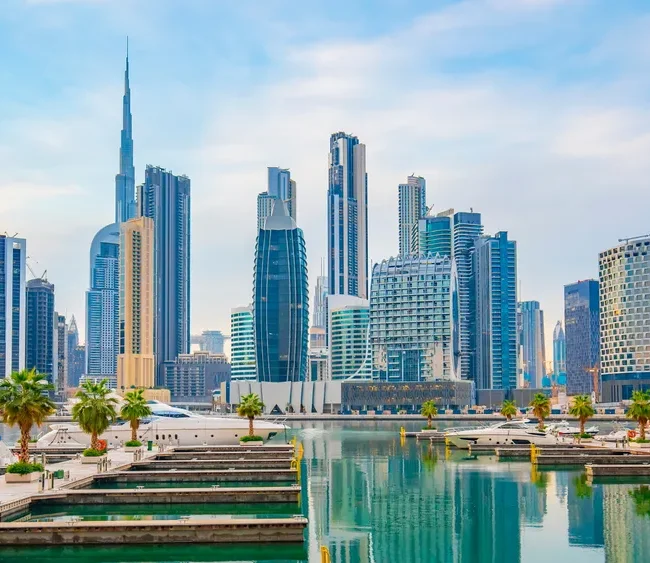
Average Apartment Prices in Dubai in 2025
The price of an apartment in Dubai varies depending on the neighborhood, the size of the unit, and the view (sea, city, or garden). On average, prices remain competitive. Compared to other global cities, Dubai is significantly more affordable while still offering modern infrastructure and a business-friendly environment. Here’s approximate data for Dubai ready property:
Off Plan Apartment Price in Dubai 2025
| Neighborhood | 2025 (AED) | 2024 (AED) | 1-Year Variation % |
| Jumeirah Village Circle | 715,000 | 716,000 | -0.14% |
| Business Bay | 1,127,000 | 1,156,000 | -2.51% |
| Dubai Hills | 1,169,000 | 1,078,000 | 8.44% |
| Downtown Dubai | 1,805,000 | 1,745,000 | 3.44% |
| Palm Jumeirah | – | – | |
| Dubai Creek Harbour | – | – | |
| Dubai Marina | 1,629,000 | 1,350,000 | 20.67% |
| Dubai South | 689,000 | 618,000 | 11.49% |
| JLT | 1,452,000 | 1,343,000 | 8.12% |
| Dubai Harbour | – | – | |
| Dubai Maritime City | 1,225,000 | 1,207,000 | 1.49% |
| Jumeirah Garden City | 928,000 | 913,000 | 1.64% |
| Arjan | 680,000 | 675,000 | 0.74% |
| Jabal Ali First | 659,000 | 627,000 | 5.10% |
| Al Hebiah Fifth | – | – | |
| Al Merkadh | 992,000 | 878,000 | 12.98% |
| Nadd Hessa | 824,000 | 773,000 | 6.60% |
| Neighborhood | 2025 (AED) | 2024 (AED) | 1-Year Variation % |
| Jumeirah Village Circle | 1,156,000 | 1,113,000 | 3.86% |
| Business Bay | 2,024,000 | 2,158,000 | -6.21% |
| Dubai Hills | 1,693,000 | 1,706,000 | -0.76% |
| Downtown Dubai | 2,725,000 | 2,500,000 | 9.00% |
| Palm Jumeirah | 4,544,000 | 4,335,000 | 4.82% |
| Dubai Creek Harbour | 2,012,000 | 1,940,000 | 3.71% |
| Dubai Marina | 2,763,000 | 2,150,000 | 28.51% |
| Dubai South | 1,015,000 | 900,000 | 12.78% |
| JLT | 2,576,000 | 2,434,000 | 5.83% |
| Dubai Harbour | 4,310,000 | 4,424,000 | -2.58% |
| Dubai Maritime City | 2,494,000 | 2,316,000 | 7.69% |
| Jumeirah Garden City | 1,589,000 | 1,381,000 | 15.06% |
| Arjan | 1,150,000 | 1,120,000 | 2.68% |
| Jabal Ali First | 1,589,000 | 1,182,000 | 34.43% |
| Al Hebiah Fifth | 1,389,000 | 1,320,000 | 5.23% |
| Al Merkadh | 1,622,000 | 1,490,000 | 8.86% |
| Nadd Hessa | 1,186,000 | 1,093,000 | 8.51% |
| Neighborhood | 2025 (AED) | 2024 (AED) | 1-Year Variation % |
| Jumeirah Village Circle | 1,715,000 | 1,651,000 | 3.88% |
| Business Bay | 3,617,000 | 3,525,000 | 2.61% |
| Dubai Hills | 2,735,000 | 2,839,000 | -3.66% |
| Downtown Dubai | 4,882,000 | 4,130,000 | 18.21% |
| Palm Jumeirah | 9,010,000 | 8,654,000 | 4.11% |
| Dubai Creek Harbour | 3,059,000 | 3,043,000 | 0.53% |
| Dubai Marina | |||
| Dubai South | 1,319,000 | 1,340,000 | -1.57% |
| JLT | 4,049,000 | 3,821,000 | 5.97% |
| Dubai Harbour | 8,026,000 | 9,554,000 | -15.99% |
| Dubai Maritime City | 4,514,000 | 3,470,000 | 30.09% |
| Jumeirah Garden City | 2,329,000 | 2,179,000 | 6.88% |
| Arjan | 1,675,000 | 1,689,000 | -0.83% |
| Jabal Ali First | 2,595,000 | 1,688,000 | 53.73% |
| Al Hebiah Fifth | 2,041,000 | 1,998,000 | 2.15% |
| Al Merkadh | 2,491,000 | 2,375,000 | 4.88% |
| Nadd Hessa | 1,613,000 | 1,530,000 | 5.42% |
| Neighborhood | 2025 (AED) | 2024 (AED) | 1-Year Variation % |
| Jumeirah Village Circle | 2,280,000 | 2,238,000 | 1.88% |
| Business Bay | 5,615,000 | 5,310,000 | 5.74% |
| Dubai Hills | 4,144,000 | 4,053,000 | 2.25% |
| Downtown Dubai | 14,500,000 | 9,401,000 | 54.24% |
| Palm Jumeirah | 13,275,000 | 13,871,000 | -4.30% |
| Dubai Creek Harbour | 4,224,000 | 4,214,000 | 0.24% |
| Dubai Marina | – | – | – |
| Dubai South | – | 1,822,000 | – |
| JLT | – | 5,700,000 | – |
| Dubai Harbour | 12,130,000 | 11,266,000 | 7.67% |
| Dubai Maritime City | 5,751,000 | 5,039,000 | 14.13% |
| Jumeirah Garden City | – | – | – |
| Arjan | – | – | – |
| Jabal Ali First | 2,284,000 | 2,250,000 | 1.51% |
| Al Hebiah Fifth | – | – | – |
| Al Merkadh | 3,280,000 | 3,300,000 | -0.61% |
| Nadd Hessa | 2,400,000 | 2,150,000 | 11.63% |
Ready Apartment Price in Dubai 2025
| Neighborhood | 2025 (AED) | 2024 (AED) | 1-Year Variation % |
| Jumeirah Village Circle | 620,000 | 600,000 | 3.33% |
| Business Bay | 960,000 | 950,000 | 1.05% |
| Dubai Hills | 979,000 | 890,000 | 10.00% |
| Downtown Dubai | 1,650,000 | 1,243,000 | 32.74% |
| Palm Jumairah | 1,500,000 | 1,375,000 | 9.09% |
| Dubai Creek Harbour | – | – | – |
| Dubai Marina | 1,305,000 | 1,025,000 | 27.32% |
| Dubai South | 362,000 | 399,000 | -9.27% |
| JLT | – | – | – |
| Dubai Harbour | – | – | – |
| Dubai Maritime City | – | 1,100,000 | – |
| Jumeirah Garden City | – | – | – |
| Arjan | 585,000 | 550,000 | 6.36% |
| Jabal Ali first | 515,000 | 505,000 | 1.98% |
| Al hebiah Fifth | 490,000 | 438,000 | 11.87% |
| Al Merkadth | 693,000 | 661,000 | 4.84% |
| Nadd hessa | 462,000 | 430,000 | 7.44% |
| Neighborhood | 2025 (AED) | 2024 (AED) | 1-Year Variation % |
| Jumeirah Village Circle | 1,029,000 | 940,000 | 9.47% |
| Business Bay | 1,500,000 | 1,365,000 | 9.89% |
| Dubai Hills | 1,510,000 | 1,428,000 | 5.74% |
| Downtown Dubai | 2,355,000 | 2,100,000 | 12.14% |
| Palm Jumairah | 2,650,000 | 2,725,000 | -2.75% |
| Dubai Creek Harbour | 1,740,000 | 1,680,000 | 3.57% |
| Dubai Marina | 1,613,000 | 1,465,000 | 10.10% |
| Dubai South | 695,000 | 695,000 | 0.00% |
| JLT | – | 2,800,000 | – |
| Dubai Harbour | – | – | – |
| Dubai Maritime City | 2,000,000 | 2,000,000 | 0.00% |
| Jumeirah Garden City | 1,348,000 | 1,323,000 | 1.89% |
| Arjan | 927,000 | 940,000 | -1.38% |
| Jabal Ali first | 803,000 | 755,000 | 6.36% |
| Al hebiah Fifth | 645,000 | 640,000 | 0.78% |
| Al Merkadth | 1,400,000 | 1,313,000 | 6.63% |
| Nadd hessa | 700,000 | 640,000 | 9.38% |
| Neighborhood | 2025 (AED) | 2024 (AED) | 1-Year Variation % |
| Jumeirah Village Circle | 1,475,000 | 1,469,000 | 0.41% |
| Business Bay | 2,335,000 | 2,235,000 | 4.47% |
| Dubai Hills | 2,367,000 | 2,200,000 | 7.59% |
| Downtown Dubai | 4,100,000 | 3,650,000 | 12.33% |
| Palm Jumairah | 4,400,000 | 4,200,000 | 4.76% |
| Dubai Creek Harbour | 2,600,000 | 2,700,000 | -3.70% |
| Dubai Marina | 2,200,000 | 2,250,000 | -2.22% |
| Dubai South | 1,107,000 | 994,000 | 11.37% |
| JLT | – | 4,650,000 | – |
| Dubai Harbour | – | – | – |
| Dubai Maritime City | 3,250,000 | 3,094,000 | 5.04% |
| Jumeirah Garden City | 3,044,000 | 2,191,000 | 38.93% |
| Arjan | 1,450,000 | 1,400,000 | 3.57% |
| Jabal Ali first | 1,420,000 | 1,280,000 | 10.94% |
| Al hebiah Fifth | 1,100,000 | 970,000 | 13.40% |
| Al Merkadth | 2,313,000 | 2,311,000 | 0.09% |
| Nadd hessa | 1,058,000 | 1,105,000 | -4.25% |
| Neighborhood | 2025 (AED) | 2024 (AED) | 1-Year Variation % |
| Jumeirah Village Circle | 2,250,000 | 1,925,000 | 16.88% |
| Business Bay | – | – | – |
| Dubai Hills | 3,915,000 | 3,988,000 | -1.83% |
| Downtown Dubai | 6,725,000 | 5,850,000 | 14.96% |
| Palm Jumairah | 6,150,000 | 6,350,000 | -3.15% |
| Dubai Creek Harbour | 4,074,000 | 3,800,000 | 7.21% |
| Dubai Marina | 4,250,000 | 3,700,000 | 14.86% |
| Dubai South | – | – | – |
| JLT | – | – | |
| Dubai Harbour | – | – | – |
| Dubai Maritime City | – | 4,100,000 | – |
| Jumeirah Garden City | – | 3,469,000 | – |
| Arjan | 2,007,000 | 2,000,000 | 0.35% |
| Jabal Ali first | 2,250,000 | 2,200,000 | 2.27% |
| Al hebiah Fifth | 1,675,000 | 1,600,000 | 4.69% |
| Al Merkadth | 3,700,000 | 3,200,000 | 15.63% |
| Nadd hessa | 1,503,000 | 1,503,000 | 0.00% |
The price of an apartment in Dubai varies depending on the neighborhood, the size of the unit, and the view (sea, city, or garden). On average, prices remain competitive. Compared to other global cities, Dubai is significantly more affordable while still offering modern infrastructure and a business-friendly environment.
Per Square Foot Price In Dubai By Neighborhood 2025
The price per square meter in Dubai ranges from €5,500 to €11,500 depending on the area. Here’s a comparison by neighborhood. These prices reflect market preferences—properties by the sea or with iconic views, such as the Burj Khalifa, naturally hold higher value.
| Neighborhood | 2025 (AED) | 2022 (AED) | 3-Year Variation % |
| Jumeirah Village Circle | 1,460 | 1,180 | 23.73% |
| Business Bay | 2,300 | 2,120 | 8.49% |
| Dubai Hills | 2,030 | 1,910 | 6.28% |
| Downtown Dubai | 3,060 | 2,400 | 27.50% |
| Palm Jumairah | 2,980 | 2,840 | 4.93% |
| Dubai Creek Harbour | – | – | – |
| Dubai Marina | 2,670 | 2,090 | 27.75% |
| Dubai South | 900 | 1,100 | -18.18% |
| JLT | – | – | – |
| Dubai Harbour | – | – | – |
| Dubai Maritime City | – | 2,110 | – |
| Jumeirah Garden City | – | – | – |
| Arjan | 1,410 | 1,190 | 18.49% |
| Jabal Ali first | 1,130 | 1,040 | 8.65% |
| Al hebiah Fifth | 1,110 | 850 | 30.59% |
| Al Merkadth | 2,010 | 1,820 | 10.44% |
| Nadd Hessa | 1,090 | 860 | 26.74% |
| Neighborhood | 2025 (AED) | 2022 (AED) | 3-Year Variation % |
| Jumeirah Village Circle | 1700 | 1590 | 6.92% |
| Business Bay | 2560 | 2630 | -2.66% |
| Dubai Hills | 2760 | 2010 | 37.31% |
| Downtown Dubai | 3910 | 3260 | 19.94% |
| Palm Jumeirah | – | – | – |
| Dubai Creek Harbour | – | – | – |
| Dubai Marina | – | – | – |
| Dubai South | 1610 | 1400 | 15.00% |
| JLT | 2620 | 2420 | 8.26% |
| Dubai Harbour | – | – | – |
| Dubai Maritime City | 2830 | 2750 | 2.91% |
| Jumeirah Garden City | 2580 | 2300 | 12.17% |
| Arjan | 1600 | 1450 | 10.34% |
| Jabal Ali First | 1600 | 1520 | 5.26% |
| Al Hebiah Fifth | – | – | – |
| Al Merkadh | 2350 | 1710 | 37.43% |
| Nadd Hessa | 2000 | 1950 | 2.56% |
Factors Influencing Apartment Prices in Dubai
Dubai’s real estate market is one of the most vibrant and rapidly evolving in the world, with apartment prices fluctuating according to a myriad of factors. This article will discuss some of the most prominent influencers.
Location
The location of an apartment significantly impacts its price in Dubai. Properties in sought-after areas like Downtown Dubai and Palm Jeharah tend to attract higher prices due to the amenities, safety, accessibility, and scenic views they offer. Other affluent areas in Dubai such as Business Bay and Dubai Marina also command high apartment prices due to their prime location, upscale amenities, and cosmopolitan lifestyle. On the other hand, neighborhoods farther from the city center are generally more affordable.
Infrastructure and Amenities
Estate developers often incorporate world-class amenities such as gyms, swimming pools, and playgrounds into their apartment complexes. These are designed to provide a lifestyle of convenience, leisure, and luxury to the residents. The existence of such amenities can elevate the cost of apartments within such estates. Furthermore, apartments located in complexes with high-end supermarkets, fine dining restaurants, and private beaches also command higher prices.
Addition of Amenities: A Comparative Analysis
Indirectly, the availability of such amenities adds value to the property by enhancing its allure and making it more appealing to the prospective buyers. For instance:
- A 2019 study showed that properties with gyms had a higher value than those without.
- Apartments integrated with their own swimming pools were sold at prices greater than their non-pool counterparts.
- Estates featuring playgrounds were found enticing by families, willing to pay more for this feature.
Moreover, the proximity to foundational facilities plays a decisive role in the cost-pricing of apartments. The inclusion of essential shops such as high-end supermarkets, availability of fine dining restaurants and private beaches in the vicinity significantly contributes to an increase in the prices.
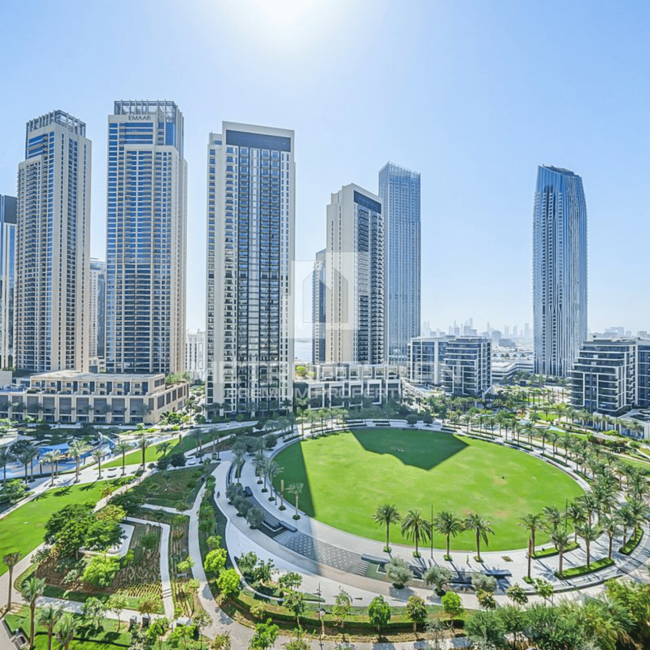
Government Regulations
The government also indirectly influences prices through regulations and policies. These policies cover a wide range including real estate laws, property registration rules, environmental regulations, and taxation. For example, the introduction of stringent regulations, such as stricter building codes or environmental standards, can increase the cost of compliance for developers. These additional costs may then be passed on to the home buyers, leading to an increase in property prices.
On the flip side, the government can also reduce property prices through incentives like tax deductions, subsidies, and grants. These incentives often aim to promote certain real estate sectors or locations. Such direct financial incentives can lower the net cost for home buyers, thereby reducing property prices.
An Overview of Government Regulations influencing Real Estate
- Zoning Laws: These laws define how the property in specific geographical zones can be used. For instance, certain areas may be reserved for residential, commercial, or industrial use which can significantly impact property prices.
- Building Codes: Standards set by the government for construction of buildings influence the cost of development and, in turn, property prices.
- Tax laws and incentives: These can affect real estate prices by making it more or less attractive to invest in certain properties.
- Environmental Regulations: Compliance with these regulations can lead to increased costs, affecting the final pricing of properties.
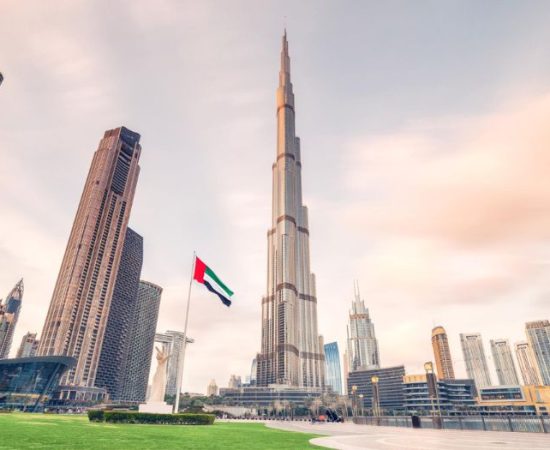
Major Factors Impacting the Market
Considering the dynamic nature of the real estate market, several key elements are expected to significantly contribute to an upward progression in property value and investment. Crucial catalysts for this promising growth envisaged in the near future include international expos, health factors.
Government Incentives
Governmental bodies have been keen on releasing a spectrum of incentives designed to uphold and attract potential investors. Among these incentives include attractive mortgage rates, reduction in property tax, and fees waivers, which significantly influence the decision making of both local and international investors.
Expo 2020
This international exhibition is poised to draw the attention of possibly millions of worldwide visitors, sparking a considerable hike in demand for short-term rentals and various hospitality services. This surge in demand can indirectly supercharge performance within the property market. An estimated increase of about 20% in property prices is expected within the Expo 2020 area, as per a report by Property Monitor.
Let us further analyze these points through the following table:
Factors | Description | Estimated Impact on the Market |
Expo 2020 | An international exposition expected to attract millions of tourists, increasing demand for short-term rentals and hospitality services. | Increase in property prices by around 20% |
The Vaccine Effect | Successful COVID-19 vaccination waves fostering a sense of safety among investors, both locally and internationally. | Growth in property inquiries of up to 30% |
Government Incentives | Various incentives, such as reduced property tax and fees waivers, aimed at retaining and attracting investors. | Subject to investor response, potentially significant impact on investment decisions. |
Investment Opportunities in Dubai's Apartment Market
With the ongoing market recovery, the window of investment opportunity is currently wide open in Dubai. Given that the prices are still highly competitive, strategic investment now could yield sizeable benefits as the market continues to boom. As a fitting example, investors who secure properties in Jumeirah Village Circle could anticipate a return on investment exceeding 10% as property prices surge.
Dubai’s real estate market is showing considerable promise, especially in the apartment sector. According to data from the Dubai Land Department, the first six months of this year, for instance, have already seen the transaction volumes increase by approximately 40% compared to the same period last year.
A deeper analysis of the real estate trends suggests multiple opportunities with some highlighted as follows
- Diversified Options: With a wide range of apartments from studios to luxury penthouses on offer, investors have the flexibility to choose based on their budget and investment goals.
- Attractive Yields: Despite global economic uncertainties, Dubai's apartment market continues to offer one of the best rental yields worldwide ranking at an average of 6.5% per annum.
- Robust Infrastructure: Thanks to its world-class infrastructure and amenities, Dubai has risen to prominence as a preferred destination for both long-term residents and tourists
Understanding the Rental Yield in Dubai
Investors should take note of Dubai’s high rental yields compared to international markets, making it a profitable real estate market for national and international investors alike. In certain regions like Dubai Silicon Oasis and International City, rental yields can exceed 7% and 9% respectively.
Exploring the Nuances of Rental Yields in Dubai
The high rental yield in Dubai reflects the city’s robust real estate sector. This is characterised by a high demand for property both for rental and purchase, often driven by a considerable number of expatriates. Furthermore, the city’s strategic position as a global hub for business and tourism further increases the buoyancy of its real estate market.
The following factors play a key role in maintaining high rental yields in Dubai:
Government Regulations
The government supports real estate investments with favourable laws and regulations, such as the provision for freehold ownership in designated areas.
Economic Diversity
With sectors such as tourism, logistics, and finance performing exceptionally well, the demand for residential and commercial properties continues to rise.
Population Growth
Dubai’s population is continuously growing, thanks to high rates of expatriation. This fuels demand for rental properties.
Key Strategies While Investing in Dubai's Apartment Market
Investing in Dubai’s apartment market requires a strategic approach to maximize profit and minimize risk. Prospective buyers should consider several critical factors like location, which carries immense weight as it can influence rental yields and property appreciation. Properties within proximity to essential amenities such as shopping centres and schools are generally more desirable and can yield higher profits. Predicting the potential for capital growth is key to ascertaining the return on investment the property might generate.
To navigate this complex process, it\’s advisable to partner with a credible and knowledgeable real estate advisor. They can provide insights into the intricacies of the market, critical legal requirements, negotiate reasonable terms,and help make informed decisions. However, partnering with experts is just a piece of the puzzle. Additional strategies should be implemented such as:
Thoroughly Researching Market Trends
Before investing in any property, it’s important to understand the current state of the local market. Include analysis of market dynamics, the economic environment and property prices. For instance, according to Dubai Land Department, in 2019 the market witnessed a growth of 20% in foreign investments. This indicates a positive momentum in the market.
Choosing Properties with High Liquidity
Properties in prime areas typically have high liquidity as they can be sold or rented out readily. High liquidity properties provide an escape route should a sell-off be required due to sudden market changes or personal circumstances.
Sourcing Finance Wisely
Consider all financing options before making a purchase. It\’s essential to have a sound financial plan to avoid any future financial constraints. One option is to avail of a mortgage; as per UAE Central Bank rules, expats can borrow up to 75% of the property’s value if it is less than AED 5 million.
Monthly Reports
Explore More Price Trends in the UAE
Frequently Asked Questions
What is the current trend in apartment prices in Dubai?
After a period of decline during the peak of the COVID-19 pandemic, apartment prices in Dubai are now showing signs of recovery and growth.
What factors influence apartment prices in Dubai?
Government policies, infrastructure development, investor sentiment, societal stability, and external macroeconomic conditions significantly influence apartment prices.
Are there good investment opportunities in Dubai's apartment market currently?
Absolutely, with the ongoing market recovery and competitive prices, there are ample investment opportunities for savvy investors in Dubai’s apartment market.
Which neighborhoods in Dubai offer the best value for apartment investments?
Neighborhoods like Jumeirah Lakes Towers and Dubai Marina offer excellent rental yields, making them good choices for apartment investments.
What is the outlook for the Dubai apartment market?
Considering the current recovery trend and upcoming initiatives like Dubai Expo 2020, the outlook for the Dubai apartment market looks promising.

